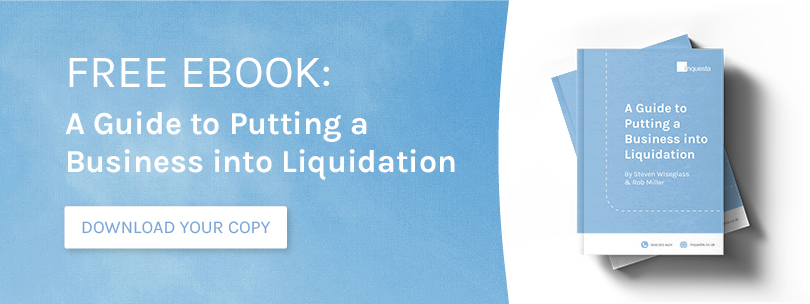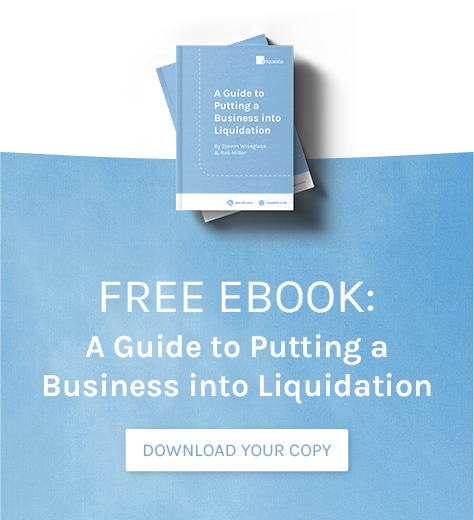If an unexpected pothole in the road occurs, operating with low working capital could be all it takes to put a company out of business.
Understanding the risks that operating with a low working capital can mean, and knowing what you can do to improve it can ensure a sustainable future for your firm.
Find out more about the importance of the right balance in your working capital, how you can improve, and what Inquesta can do to assist, are all in our latest blog.
What Working Capital Means
Working capital details the notable difference between a company’s current assets and its current liability figures. The working capital figure represents the finances that a firm has available to operate with; to pay staff and suppliers, purchase seasonal inventory, and to grow as a business.
Examples of current assets include accounts receivable, cash, inventory, and more; while current liabilities are things like dividends, notes payable, and income taxes owed.
In business, current assets are generally something a firm owns that can be quickly (within the next 12 months) turned into cash. This usually refers to savings, accounts receivable, stocks, bonds, inventory etc.
Current liabilities are understood to be any expenses that a company has that are expected to be settled using cash within the fiscal year. This includes the cost of raw materials or supplies that will be needed to produce goods, due payments on debts, or bills received but not paid, it also includes taxes and interest due within the next year.
What Low Working Capital Means
Low working capital is when a company is operating with a relatively fine margin between their current assets and current liabilities. In a lot of cases low working capital can mean that a business is struggling to operate under its current parameters, with barely enough capital to cover short-term expenses, and often little planning for further down the line.

In some industries, like retail, low working capital can lead to disastrous results and a high working capital is recommended for smooth operation, however some businesses in other industries can run efficiently on a relatively low working capital, provided that they have consistent sources of revenue and a good business model.
It is a commonly held misconception that a low working capital is automatically a bad thing. However, this is not always the case.
Some businesses will make the conscious decision to operate with low working capital. This will usually be a business with a sustainable business model, that has been operating successfully for a number of years, that knows exactly how much capital they need to operate smoothly.
In this case, a business may invest a portion of its excess funds in order to attempt to generate additional income, cultivate growth, or to increase the value of the brand.
Is Low Working Capital Bad?
In most cases, a high working capital would be preferred. This would mean a company has optimal resources available to cover operating expenses.
Despite this, some businesses are opting to skirt the line and choosing to operate with a low working capital to receive a long-term boost for a short-term gain. So why don’t all companies do this?
The short answer is that it can be risky.
A company’s net working capital can change drastically over time due to a variety of factors, often out of your control; from a bad business decision, to shifting consumer interests, any number of things can impact your working capital on a moment’s notice.
For example, the COVID-19 pandemic hit many businesses hard. A majority of companies in the United Kingdom needed government help such as the furlough scheme and bounce back loans to get through an unprecedented time, and many were still not able to survive.
A company who, prior to the pandemic had opted to operate in low working capital, that was then forced to close, may have found themselves unable to recoup some of the funds that they had tied up, and therefore found themselves in an incredibly tight position in the short-term. All because they had, prior to the pandemic, been planning for long-term success.
Ways to Improve Working Capital
Improving your working capital is an involved and delicate process that requires you to take an honest look at your business’s operation in order to isolate areas of improvement. There are several ways to do this, including limiting expenses, and negotiating terms with suppliers.
By improving working capital, a firm will be able to meet all of its operating demands in an efficient, and sustainable way. It also stands to protect you in the long term from whatever the business world may throw at you.
Working on improving your working capital will help your business avoid any shortages to cash flow, and directly help you to avoid needing to take on additional debts and loans, and should help to minimise the risk of forced liquidation down the road.
Here are four ways you can improve low working capital to help you get ahead of the curve:
Limit Expenses
One of the first steps to improving low working capital is to look inwards. Reviewing your business’ costs will help you to determine if there are any areas that need some attention to streamline and limit outgoings.

Go over your expenses with a fine-tooth comb and be as transparent and honest as possible. Make sure you’re not overspending and set rules to restrict spending if you find that certain aspects of the business are becoming a drain on your resources.
It may also be worthwhile to study the expenses you are spending for business meetings, social events, trips, and more. If you are wanting to improve your working capital and establish a more sustainable future for the business then cutting out the unnecessary outgoings can go a huge way. Even if employees might not thank you for it.
Pay close, meticulous attention to your expenses and your cash flow and working capital will be sure to pick up.
More Efficient Collection of Receivables
Another key step in improving a low working capital is to ensure that you are collecting your receivables more efficiently.
If you find that you have a number of creditors regularly owing you money, then it may be worth vetting who you deal with more. If you can spot a pattern in a prospective client’s payment history then it may not be worth the risk of taking on their custom, or it may be worth looking into a more concrete payment plan from the outset.
You may also wish to consider incentivising people to pay on time by offering some form of motivation for them to want to quickly pay. You can also do the same with members of your team and ensure invoices are received promptly.
Negotiate with Suppliers
All business owners fancy themselves as having the gift of the gab, don’t they?
As simple as it may sound, the art of negotiating can save any business a small fortune each year. Make sure to occasionally review your suppliers, find out if you can get a better price with them, or if needed, elsewhere.
Loyalty is an excellent trait, and can take you far in business when appropriate. But you never want to be loyal to any particular supplier to a fault. If a supplier is no longer offering you suitable terms, then you likely need to consider looking elsewhere.
Making sure your payments are always on time for every supplier and vendor you work with and developing a rapport with each one will also help down the line should you ever wish to renegotiate a price.
Consult with a Registered Specialist
So, you’re an expert in your field, with years of experience in business you’re building something special. But how can you be better?
The best leaders are the ones who ask for help when they need it. Business can be full of hazards and possible red flags, it is also easy to miss things from time to time, particularly when an emotional attachment to a business is formed.
A specialist will be able to, without bias and emotion, assess your business; how it is being run, and what could be improved. They can analyse your business and devise a strategy designed specifically to improve low working capital.
How Inquesta Can Assist With Working Capital Improvement
For an impartial and clear understanding of each and every aspect of your business and its finances, you can put your trust in Inquesta.
Our expert team has years of experience offering their assistance to businesses in a wide array of industries.
We provide a unique, efficient, and bespoke service — and promise to devise a strategy to improve your working capital with minimal disruption.
The team at Inquesta specialise in providing a first-class service in all areas of financial management. Contact us, or request a free consultation today to find out more about what we can do for you.



